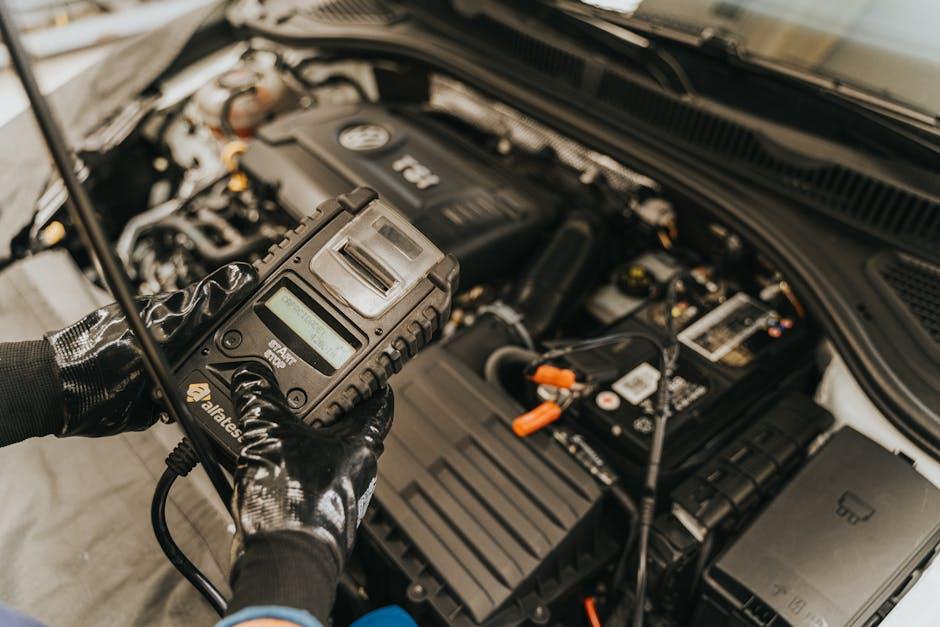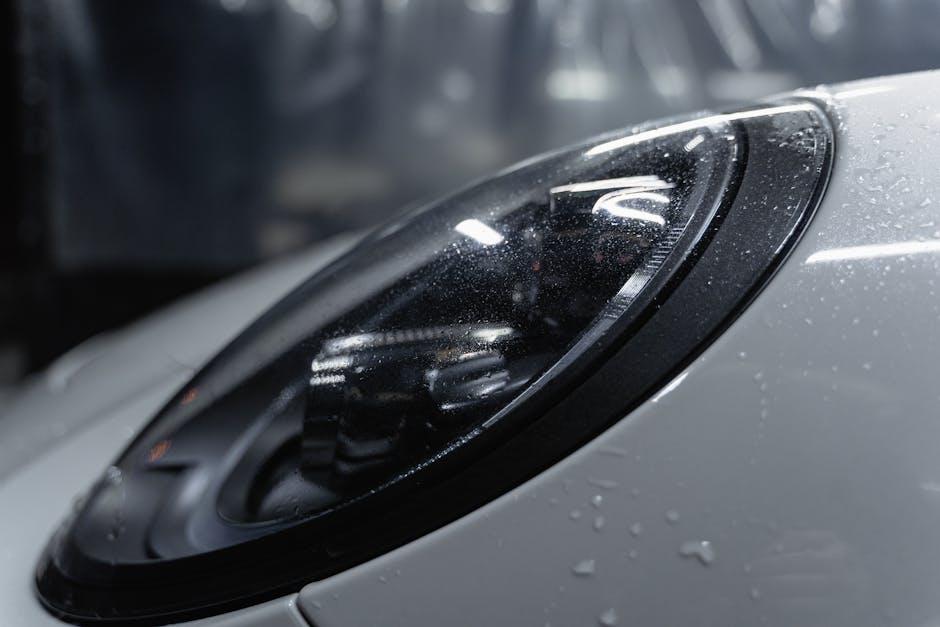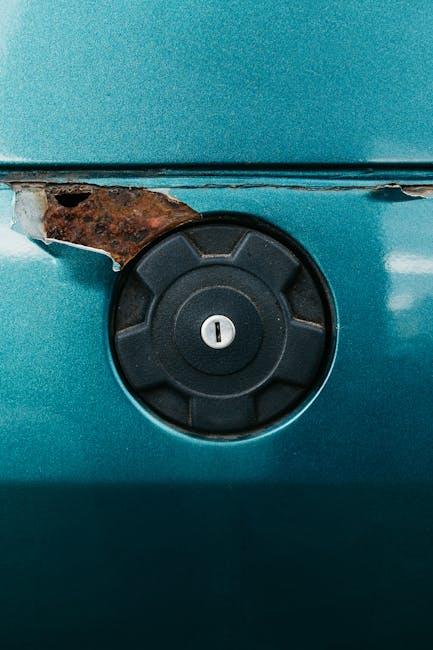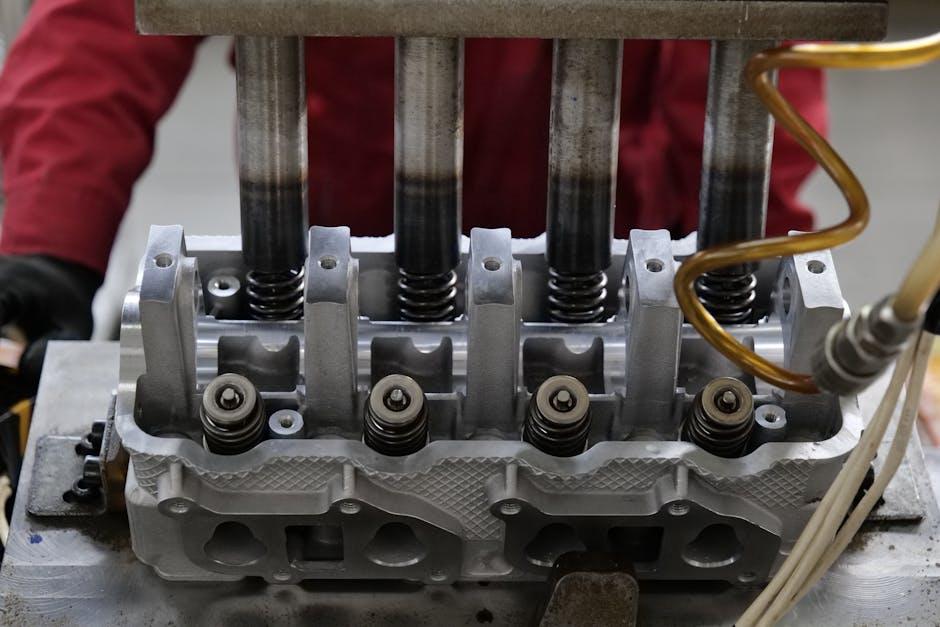Owning a car comes with a blend of freedom and responsibility. Whether you’re a seasoned driver or a new car owner, understanding the essentials of vehicle maintenance can save you time, money, and unexpected headaches down the road. From simple fixes to preventative care, mastering a few key auto repair tips can keep your car running smoothly and extend its lifespan. In this article, we explore the top 10 auto repair tips every car owner should know—empowering you to take control of your vehicle’s health with confidence and ease.
Table of Contents
- Essential Maintenance Checks to Keep Your Car Running Smoothly
- Choosing the Right Fluids and Filters for Optimal Performance
- DIY Troubleshooting Techniques Every Car Owner Should Know
- Signs You Should Never Ignore for Timely Repairs
- How to Build a Relationship with a Reliable Auto Mechanic
- Safeguarding Your Vehicle Against Common Wear and Tear
- Q&A
- The Conclusion

Essential Maintenance Checks to Keep Your Car Running Smoothly
Maintaining your vehicle’s peak performance involves routine attention to several key areas that often go unnoticed until a problem arises. Regularly inspecting your engine oil levels ensures smooth engine function and prolongs life, while monitoring tire pressure not only improves fuel efficiency but also enhances safety on the road. Don’t overlook checking your brake system—pads and fluid should be evaluated to prevent sudden failures. Keeping these elements in optimal condition helps avoid costly repairs and keeps your driving experience seamless.
Another essential habit is to routinely examine your car’s lighting and electrical systems. From headlights to dashboard indicators, everything needs to be functioning properly to maintain safety during driving. You should also regularly replace air filters to keep your engine breathing clean, which in turn improves overall efficiency. Below is a quick reference table highlighting simple maintenance tasks alongside their suggested frequency, making it easier for you to establish a reliable checkup routine:
| Maintenance Task | Check/Replace Frequency |
|---|---|
| Engine Oil | Every 3,000-5,000 miles |
| Tire Pressure | Monthly |
| Brake Pads and Fluid | Every 12,000 miles |
| Air Filters | Every 15,000 miles |
| Lights & Indicators | Monthly |

Choosing the Right Fluids and Filters for Optimal Performance
Maintaining your vehicle’s engine health hinges on selecting the proper fluids and filters tailored to its specifications. Using the wrong oil viscosity or low-quality coolant can accelerate wear and cause overheating, while genuine air and fuel filters ensure contaminants stay out, protecting critical engine components. Always consult your owner’s manual or a trusted mechanic to identify the recommended products that match your car’s make and model, guaranteeing a smooth and efficient drive.
Here are key points to consider when choosing fluids and filters:
- Viscosity and Type: Engine oils come in various grades like 5W-30 or 10W-40—pick the one suited for your climate and engine design.
- OEM vs Aftermarket: While Original Equipment Manufacturer (OEM) parts ensure compatibility, select high-quality aftermarket alternatives when budget-friendly options are needed.
- Filter Efficiency: High-efficiency filters trap smaller particles, preserving engine longevity and optimizing fuel economy.
| Fluid/Filter | Recommended Check Interval | Benefit |
|---|---|---|
| Engine Oil | Every 5,000-7,500 miles | Reduces wear & improves performance |
| Air Filter | Every 15,000-30,000 miles | Improved air intake & fuel efficiency |
| Fuel Filter | Every 20,000-40,000 miles | Prevents fuel system clogging |

DIY Troubleshooting Techniques Every Car Owner Should Know
When your vehicle acts up, knowing how to identify the root cause before calling for professional help can save you both time and money. Start by observing key symptoms such as unusual noises, dashboard warning lights, or changes in driving behavior. A thorough visual check under the hood and around the tires can often reveal obvious issues like loose belts, leaking fluids, or worn-out components. Equipping yourself with a basic OBD-II scanner unlocks access to the car’s diagnostic data, pinpointing trouble codes that guide your repair efforts effectively.
Beyond diagnostics, practicing simple hands-on techniques can prevent minor issues from escalating. Here are some fundamental checks to incorporate into your routine:
- Fluid Levels: Regularly inspect engine oil, brake fluid, and coolant to maintain optimum levels.
- Tire Pressure: Properly inflated tires enhance fuel efficiency and safety.
- Battery Health: Clean terminals and test voltage to avoid unexpected stalls.
- Light Functionality: Replace burnt-out bulbs to ensure visibility and compliance.
| Symptom | Possible Cause | Quick Fix |
|---|---|---|
| Engine knocking | Low octane fuel or dirty spark plugs | Use higher grade fuel, replace spark plugs |
| Dashboard check engine light | Varied sensor issue | Scan with an OBD-II tool, address specific error |
| Brakes squeaking | Worn brake pads | Inspect and replace brake pads promptly |

Signs You Should Never Ignore for Timely Repairs
Ignoring early warning signs in your vehicle can lead to costly repairs and unsafe driving conditions. Pay close attention to any unusual noises such as grinding, squealing, or knocking sounds, as these often indicate worn-out components that need immediate attention. Additionally, if your car exhibits erratic behavior—like sudden stalling, decreased acceleration, or dashboard warning lights—don’t delay diagnostics. These symptoms act as your car’s way of communicating distress, signaling critical systems that require timely intervention.
Other subtle signals include
- Vibrations or pulling to one side when driving, hinting at alignment or suspension issues
- Fluid leaks underneath your vehicle, which could point to engine, transmission, or brake system problems
- Unusual odors such as burning or fuel smells, which shouldn’t be ignored due to safety risks
Alongside these signs, maintain a routine check of tire pressure and brake responsiveness, as they directly affect vehicle performance and safety. Early detection not only minimizes repair costs but also preserves your car’s longevity and ensures peace of mind on every drive.

How to Build a Relationship with a Reliable Auto Mechanic
Establishing trust with your auto mechanic transforms routine repairs from a source of stress into a straightforward, even reassuring process. Start by seeking recommendations from friends or family members who have reliable experiences—word of mouth remains one of the best ways to find a dependable expert. When you visit a new shop, observe the professionalism of the staff, the cleanliness of the workspace, and whether they provide clear explanations. Don’t hesitate to ask questions about the repair process or inquire if they use OEM parts. Transparency and communication are key indicators of reliability.
Building a solid relationship benefits you long-term through perks such as priority scheduling or honest advice on maintenance versus replacement. Take note of these signs that help gauge trustworthiness:
- Consistent pricing: no surprise fees or hidden costs;
- Written estimates: clear and detailed before work begins;
- Follow-up care: calls to check on your vehicle’s condition post-repair;
- Warranty on repairs: demonstrating confidence in their work.
One approach to keep track of your visits and repairs is to maintain a simple log like this:
| Date | Service Performed | Mechanic/Shop | Notes |
|---|---|---|---|
| 03/15/2024 | Oil change & filter replacement | Joe’s Auto Repair | Used recommended synthetic oil |
| 05/10/2024 | Brake pad replacement | Joe’s Auto Repair | Replaced with OEM parts, 1-year warranty |
This simple habit not only keeps your vehicle history organized but also strengthens your dialogue with the mechanic, helping them provide more tailored, effective care every time you visit.

Safeguarding Your Vehicle Against Common Wear and Tear
To keep your vehicle running smoothly and extend its lifespan, focus on proactive maintenance habits. Regularly inspect key components such as tires, brakes, and fluid levels. Simple actions like rotating your tires every 6,000 miles and checking brake pads for wear can prevent costly repairs and ensure your safety on the road. Remember, consistent attention to oil and coolant changes protects your engine from undue strain caused by contamination and overheating.
Implementing a routine checklist can dramatically reduce the effects of daily wear. Here are crucial areas to monitor:
- Windshield wipers: Replace every 6-12 months to maintain clear visibility.
- Battery health: Test twice yearly to avoid unexpected failures.
- Alignment and suspension: Check annually to promote even tire wear and smooth handling.
| Component | Maintenance Frequency | Key Benefit |
|---|---|---|
| Oil Change | Every 5,000-7,500 miles | Engine longevity |
| Tire Rotation | Every 6,000 miles | Even tire wear |
| Brake Inspection | Every 12 months | Enhanced safety |
Q&A
Q: Why is regular maintenance important for my car?
A: Regular maintenance keeps your vehicle running smoothly, prevents unexpected breakdowns, and extends its lifespan. Think of it as giving your car a health check-up to catch small issues before they become big problems.
Q: How can I tell when my brakes need servicing?
A: Listen for squeaking or grinding noises when braking, notice if the pedal feels soft or spongy, or if the car pulls to one side. These are signs your brakes need immediate attention for safety.
Q: What’s the best way to check my tire health?
A: Regularly inspect tire pressure with a gauge, look for uneven tread wear, and check for cracks or bulges. Properly inflated and well-maintained tires ensure better fuel efficiency and safer handling.
Q: How often should I change my engine oil?
A: Typically, every 3,000 to 5,000 miles for conventional oil, but always follow your car manufacturer’s recommendation. Fresh oil lubricates engine parts, reduces wear, and improves performance.
Q: Can I do minor repairs myself?
A: Yes! Simple tasks like changing windshield wipers, replacing air filters, or topping off fluids can be done at home with basic tools, saving you time and money.
Q: What should I do if my check engine light comes on?
A: Don’t panic—sometimes it’s a minor issue, but it’s essential to have your car diagnosed promptly. Ignoring the warning can lead to expensive repairs down the road.
Q: How important is keeping the battery clean?
A: Very important! Corroded battery terminals can cause starting problems. Regularly clean terminals with a mixture of baking soda and water and ensure connections are tight.
Q: What role does coolant play, and how do I check it?
A: Coolant prevents overheating by regulating engine temperature. Check the coolant level in the reservoir when the engine is cold and top it up if it’s low, using the correct mixture recommended in your manual.
Q: Why should I pay attention to strange noises or smells?
A: Unusual sounds or odors can be early warnings of mechanical or electrical issues. Addressing these signs early can prevent breakdowns and costly repairs.
Q: When is it time to replace wiper blades?
A: If your wipers leave streaks, chatter, or miss spots during a rainstorm, it’s time for new blades. Clear visibility is crucial for safe driving in all weather conditions.
The Conclusion
Whether you’re a seasoned gearhead or a casual driver, mastering these top 10 auto repair tips can transform how you care for your vehicle. With a little knowledge and a proactive attitude, routine maintenance becomes less of a chore and more of a confident routine—keeping your car running smoothly and safely for miles to come. Remember, every small step you take under the hood today paves the way for a smoother ride tomorrow. Stay curious, stay prepared, and let your car tell a story of careful upkeep and smart care.
